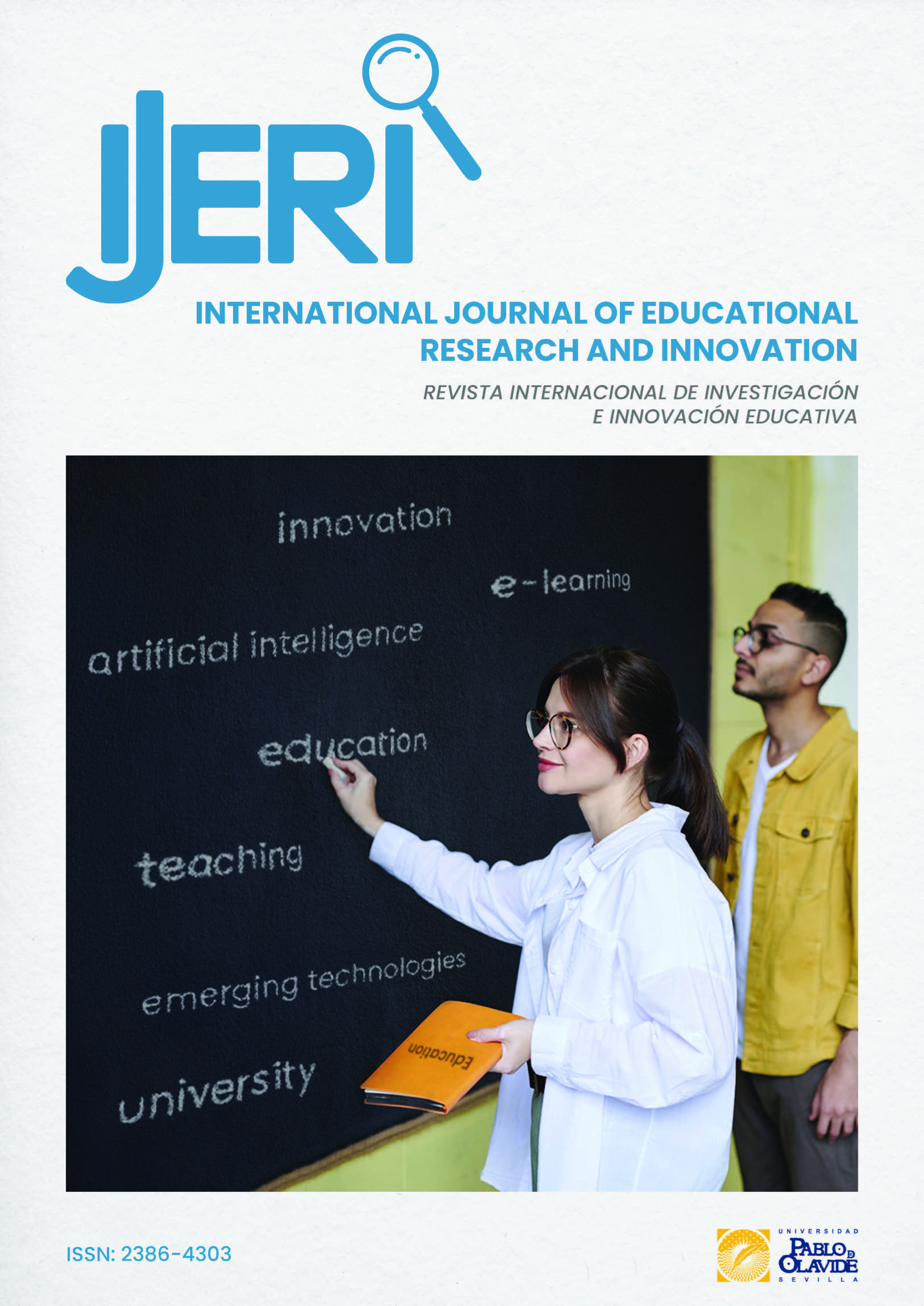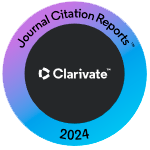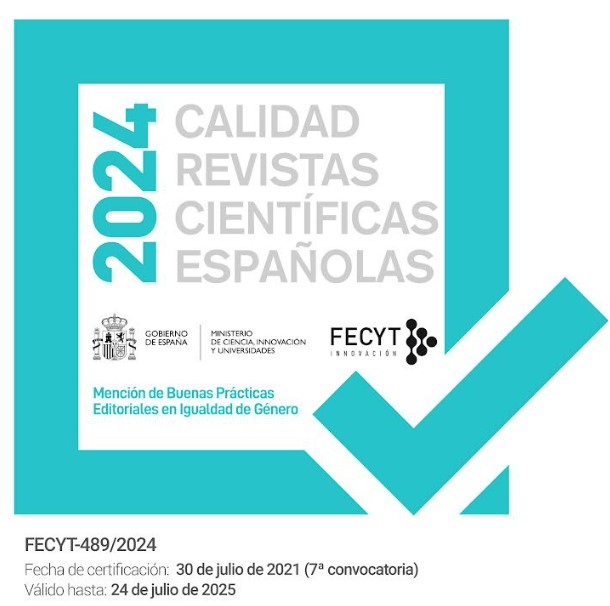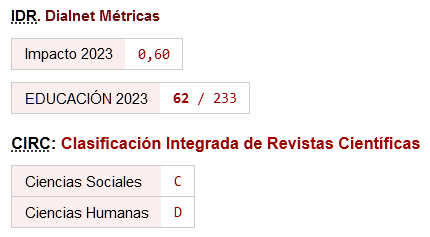Academic resilience of students to school engagement through perceived emotional support from the instructor, and gender variation
DOI:
https://doi.org/10.46661/ijeri.7556Keywords:
Academic resiliency, emotional support, instructor, undergraduate students, school engagementAbstract
Students with high academic resilience tend to cope and overcome impediments throughout the educational process. Published scholarly works have accentuated that academically resilient students are more engaged in school than their counterparts. Studies have also stressed the importance of instructor emotional support to students’ engagement in schooling. This current study is engrossed in examining academic resiliency vis-à-vis school engagement via perceived instructor emotional support from 910 samples of undergraduate students (Male: N=536, 58.9%, and Female: N=374, 41.1%) from various institutes at City College of Angeles, Philippines. Additionally, it aimed to assess the significant difference between gender concerning the three variables. Mann-Whitney U and Independent Samples T-Test were used to determine the significant difference concerning gender in academic resilience, perceived instructor emotional support, and school engagement. The findings revealed no significant difference between gender concerning school engagement, and a significant difference was found for academic resilience and perceived instructor emotional support. Partial Least Square-Structural Equation Modelling (PLS-SEM) using SmartPLS4 was performed for the mediation analysis. The findings displayed that (1) ARS is significantly related to and predicts school engagement; (2) academic resilience is positively associated with and leverages instructor emotional support; (3) perceived instructor emotional support is significantly linked to and triggers school engagement; (4) most importantly, the relationship between academic resilience and school engagement is partially mediated by perceived instructor emotional support. The results emphasized the significance of the emotional support provided by instructors in fostering resilience and engagement in undergraduate students. Findings were discoursed by highlighting the importance of promoting personal and contextual resources in the college to promote students’ overall well-being.
Downloads
References
Ahmad, N. S. binti, Khairani, A. Z. bin, & Aman, R. binti C. (2018). Assessing Resilience among Malaysian University Undergraduates. Proceedings of the 3rd ASEAN Conference on Psychology, Counselling, and Humanities (ACPCH 2017), 133, 82–85. https://doi.org/10.2991/acpch-17.2018.59
Ahmed, U., Umrani, W. A., Qureshi, M. A., & Samad, A. (2018). Examining the links between teachers support, academic efficacy, academic resilience, and student engagement in Bahrain. International Journal of Advanced and Applied Sciences, 5(9), 39–46. https://doi.org/10.21833/ijaas.2018.09.008
Akoglu, H. (2018). User’s guide to correlation coefficients. Turkish Journal of Emergency Medicine, 18(3), 91–93. https://doi.org/10.1016/j.tjem.2018.08.001
Ansong, D., Okumu, M., Bowen, G. L., Walker, A. M., & Eisensmith, S. R. (2017). The role of parent, classmate, and teacher support in student engagement: Evidence from Ghana. International Journal of Educational Development, 54, 51–58. https://doi.org/10.1016/j.ijedudev.2017.03.010
Bala, P. (2019). Gender differences in academic resilience among international students. Think India Journal, 22(16), 1211–1224. https://thinkindiaquarterly.org/index.php/think-india/article/view/14049
Benito Mundet, H., Llop Escorihuela, E., Verdaguer Planas, M., Comas Matas, J., Lleonart Sitjar, A., Orts Alis, M., Amadó Codony, A., & Rostan Sánchez, C. (2021). Multidimensional research on university engagement using a mixed method approach. Educación XX1, 24(2), 65–96. https://doi.org/10.5944/educxx1.28561
Bittmann, F. (2021). When problems just bounce back: about the relation between resilience and academic success in German tertiary education. SN Social Sciences, 1(2), 65. https://doi.org/10.1007/s43545-021-00060-6
Carmona-Halty, M. A., Schaufeli, W. B., & Salanova, M. (2019). The Utrecht Work Engagement Scale for Students (UWES–9S): Factorial Validity, Reliability, and Measurement Invariance in a Chilean Sample of Undergraduate University Students. Frontiers in Psychology, 10. https://doi.org/10.3389/fpsyg.2019.01017
Cassidy, S. (2015). Resilience Building in Students: The Role of Academic Self-Efficacy. Frontiers in Psychology, 6(NOV), 1–14. https://doi.org/10.3389/fpsyg.2015.01781
Cassidy, S. (2016). The Academic Resilience Scale (ARS-30): A New Multidimensional Construct Measure. Frontiers in Psychology, 7(NOV), 1–11. https://doi.org/10.3389/fpsyg.2016.01787
Cavioni, V., Grazzani, I., & Ornaghi, V. (2020). Mental health promotion in schools: A comprehensive theoretical framework. International Journal of Emotional Education, 12(1), 65–82. https://doi.org/10.3389/fpsyg.2021.720628
Chmitorz, A., Kunzler, A., Helmreich, I., Tüscher, O., Kalisch, R., Kubiak, T., Wessa, M., & Lieb, K. (2018). Intervention studies to foster resilience – A systematic review and proposal for a resilience framework in future intervention studies. Clinical Psychology Review, 59(November 2017), 78–100. https://doi.org/10.1016/j.cpr.2017.11.002
Domitrovich, C. E., Durlak, J. A., Staley, K. C., & Weissberg, R. P. (2017). Social-Emotional Competence: An Essential Factor for Promoting Positive Adjustment and Reducing Risk in School Children. Child Development, 88(2), 408–416. https://doi.org/10.1111/cdev.12739
Downey, J. A. (2008). Recommendations for Fostering Educational Resilience in the Classroom. Preventing School Failure: Alternative Education for Children and Youth, 53(1), 56–64. https://doi.org/10.3200/PSFL.53.1.56-64
Dwiastuti, I., Hendriani, W., & Andriani, F. (2022). The Impact of Academic Resilience on Academic Performance in College Students During the Covid-19 Pandemic. KnE Social Sciences, 2021(ICoPsy 2021), 25–41. https://doi.org/10.18502/kss.v7i1.10198
Dyrbye, L. N., Power, D. V., Massie, F. S., Eacker, A., Harper, W., Thomas, M. R., Szydlo, D. W., Sloan, J. A., & Shanafelt, T. D. (2010). Factors associated with resilience to and recovery from burnout: a prospective, multi-institutional study of US medical students. Medical Education, 44(10), 1016–1026. https://doi.org/10.1111/j.1365-2923.2010.03754.x
Eva, N., Parameitha, D. D., Farah, F. A. M., & Nurfitriana, F. (2021). Academic Resilience and Subjective Well-Being amongst College Students using Online Learning during the COVID-19 Pandemic. KnE Social Sciences, 2020, 202–214. https://doi.org/10.18502/kss.v4i15.8206
Fatima, S., & Nadeem, M. (2022). Assessing the Academic Resilience and Academic Self-Concept for Academic Achievement in School Students. Pakistan Journal of Social Research, 04(02), 414–420. https://doi.org/10.52567/pjsr.v4i2.490
Fiorilli, C., Farina, E., Buonomo, I., Costa, S., Romano, L., Larcan, R., & Petrides, K. V. (2020). Trait Emotional Intelligence and School Burnout: The Mediating Role of Resilience and Academic Anxiety in High School. International Journal of Environmental Research and Public Health, 17(9), 3058. https://doi.org/10.3390/ijerph17093058
Frenzel, A. C., Daniels, L., & Burić, I. (2021). Teacher emotions in the classroom and their implications for students. Educational Psychologist, 56(4), 250–264. https://doi.org/10.1080/00461520.2021.1985501
Frey, B. B. (2018). Convenience Sampling. In The SAGE Encyclopedia of Educational Research, Measurement, and Evaluation. SAGE Publications, Inc. https://doi.org/10.4135/9781506326139.n155
García-Crespo, F. J., Fernández-Alonso, R., & Muñiz, J. (2021). Academic resilience in European countries: The role of teachers, families, and student profiles. PLOS ONE, 16(7), e0253409. https://doi.org/10.1371/journal.pone.0253409
Gartland, D., Riggs, E., Muyeen, S., Giallo, R., Afifi, T. O., MacMillan, H., Herrman, H., Bulford, E., & Brown, S. J. (2019). What factors are associated with resilient outcomes in children exposed to social adversity? A systematic review. BMJ Open, 9(4), e024870. https://doi.org/10.1136/bmjopen-2018-024870
Hair, J. F., Hult, G. T. M., Ringle, C. M., Sarstedt, M., Danks, N. P., & Ray, S. (2021). Partial Least Squares Structural Equation Modeling (PLS-SEM). In Sage. Springer International Publishing. https://doi.org/10.1007/978-3-030-80519-7
Henseler, J., Dijkstra, T. K., Sarstedt, M., Ringle, C. M., Diamantopoulos, A., Straub, D. W., Ketchen, D. J., Hair, J. F., Hult, G. T. M., & Calantone, R. J. (2014). Common Beliefs and Reality About PLS. Organizational Research Methods, 17(2), 182–209. https://doi.org/10.1177/1094428114526928
Hu, Y. (2022). Academic Resilience in Chinese EFL Classrooms: Relationship with Teacher Support Activities. Frontiers in Educational Research, 5(5), 31–42. https://doi.org/10.25236/FER.2022.050507
Jaya, L. H. S., & Ariyanto, E. (2021). The Effect of Vigor, Dedication and Absorption on the Employee Performance of PT Garuda Indonesia Cargo. European Journal of Business and Management Research, 6(4), 311–316. https://doi.org/10.24018/ejbmr.2021.6.4.1006
Ji, R., Yue, X., & Zheng, X. (2021). Using PLS-SEM to Examine the Structure of First-year University Students’ Mathematics-related Beliefs. Higher Education Studies, 11(4), 7. https://doi.org/10.5539/hes.v11n4p7
Jindo, T., Kai, Y., Kitano, N., Tsunoda, K., Nagamatsu, T., & Arao, T. (2020). Relationship of workplace exercise with work engagement and psychological distress in employees: A cross-sectional study from the MYLS study. Preventive Medicine Reports, 17(October 2019), 101030. https://doi.org/10.1016/j.pmedr.2019.101030
Kelly, S., & Zhang, Y. (2016). Teacher Support and Engagement in Math and Science: Evidence from the High School Longitudinal Study. The High School Journal, 99(2), 141–165. https://doi.org/10.1353/hsj.2016.0005
Kennedy, M. M. (2019). How We Learn About Teacher Learning. Review of Research in Education, 43(1), 138–162. https://doi.org/10.3102/0091732X19838970
Konishi, C., & Wong, T. K. Y. (2018). Relationships and School Success: From a Social-Emotional Learning Perspective. In Health and Academic Achievement. InTech. https://doi.org/10.5772/intechopen.75012
Koob, C., Schröpfer, K., Coenen, M., Kus, S., & Schmidt, N. (2021). Factors influencing study engagement during the COVID-19 pandemic: A cross-sectional study among health and social professions students. PLOS ONE, 16(7), e0255191. https://doi.org/10.1371/journal.pone.0255191
Lam, S., Jimerson, S., Kikas, E., Cefai, C., Veiga, F. H., Nelson, B., Hatzichristou, C., Polychroni, F., Basnett, J., Duck, R., Farrell, P., Liu, Y., Negovan, V., Shin, H., Stanculescu, E., Wong, B. P. H., Yang, H., & Zollneritsch, J. (2012). Do girls and boys perceive themselves as equally engaged in school? The results of an international study from 12 countries. Journal of School Psychology, 50(1), 77–94. https://doi.org/10.1016/j.jsp.2011.07.004
Las Hayas, C., Izco-Basurko, I., Fullaondo, A., Gabrielli, S., Zwiefka, A., Hjemdal, O., Gudmundsdottir, D. G., Knoop, H. H., Olafsdottir, A. S., Donisi, V., Carbone, S., Rizzi, S., Mazur, I., Krolicka-Deregowska, A., Morote, R., Anyan, F., Ledertoug, M. M., Tange, N., Kaldalons, I., … de Manuel Keenoy, E. (2019). UPRIGHT, a resilience-based intervention to promote mental well-being in schools: study rationale and methodology for a European randomized controlled trial. BMC Public Health, 19(1), 1413. https://doi.org/10.1186/s12889-019-7759-0
Latif, S., & Amirullah, M. (2020). Students’ Academic Resilience Profiles based on Gender and Cohort. Jurnal Kajian Bimbingan Dan Konseling, 5(4), 175–182. https://doi.org/10.17977/um001v5i42020p175
Lee, J. H., Seo, M., Lee, M., Park, S. Y., Lee, J. H., & Lee, S. M. (2017). Profiles of Coping Strategies in Resilient Adolescents. Psychological Reports, 120(1), 49–69. https://doi.org/10.1177/0033294116677947
Listau, K., Christensen, M., & Innstrand, S. T. (2017). Work Engagement: A Double-Edged Sword? A Study of the Relationship between Work Engagement and the Work-Home Interaction Using the ARK Research Platform. Scandinavian Journal of Work and Organizational Psychology, 2(1), 1–13. https://doi.org/10.16993/sjwop.20
Lohner, M. S., & Aprea, C. (2021). The Resilience Journal: Exploring the Potential of Journal Interventions to Promote Resilience in University Students. Frontiers in Psychology, 12(October), 1–12. https://doi.org/10.3389/fpsyg.2021.702683
Manfrin, A., Apampa, B., & Parthasarathy, P. (2019). A conceptual model for students’ satisfaction with team-based learning using partial least squares structural equation modelling in a faculty of life sciences, in the United Kingdom. Journal of Educational Evaluation for Health Professions, 16, 36. https://doi.org/10.3352/jeehp.2019.16.36
Martin, A. J., Burns, E. C., Collie, R. J., Cutmore, M., MacLeod, S., & Donlevy, V. (2022). The role of engagement in immigrant students’ academic resilience. Learning and Instruction, 82(June), 101650. https://doi.org/10.1016/j.learninstruc.2022.101650
Morelli, E., Palamà, D., & Meneghelli, C. (2015). Il ruolo degli stili cognitivi e degli aspetti emotivo- motivazionali nella buona riuscita nello studio. Difficoltà Di Apprendimento e Didattica Inclusiva, 2, 477–486. http://tutorapprendimento.psy.unipd.it/sites/default/files/ps_Il_ruolo_degli_stili_cognitivi.pdf
Morote, R., Las Hayas, C., Izco-Basurko, I., Anyan, F., Fullaondo, A., Donisi, V., Zwiefka, A., Gudmundsdottir, D. G., Ledertoug, M. M., Olafsdottir, A. S., Gabrielli, S., Carbone, S., Mazur, I., Królicka-Deręgowska, A., Knoop, H. H., Tange, N., Kaldalóns, I. V., Jónsdóttir, B. J., González Pinto, A., & Hjemdal, O. (2022). Co-creation and regional adaptation of a resilience-based universal whole-school program in five European regions. European Educational Research Journal, 21(1), 138–164. https://doi.org/10.1177/1474904120947890
Mozammel, S., Ahmed, U., Slade, H., & Zaman, F. (2018). Digging deep in students’ engagement in Bahrain: Contributions from academic self-efficacy and academic resilience. International Journal of Management and Business Research, 8(1), 136–147. https://www.aou.org.bh/research/Documents/Research/BAS/Dr_Umair/Journals/2018B.pdf
Nyambura Mwangi, C., & Muriithi Ireri, A. (2017). Gender Differences in Academic Resilience and Academic Achievement among Secondary School Students in Kiambu County, Kenya. Psychology and Behavioral Science International Journal, 5(5), 1–7. https://doi.org/10.19080/PBSIJ.2017.05.555673
Pakarinen, E., Lerkkanen, M.-K., & von Suchodoletz, A. (2020). Teacher emotional support in relation to social competence in preschool classrooms. International Journal of Research & Method in Education, 43(4), 444–460. https://doi.org/10.1080/1743727X.2020.1791815
Pangle, J. E. (2022). Student Achievement and Teacher Perceptions of School Climate in Title 1 and NonTitle 1 Schools. Electronic Theses and Dissertations, 4122. https://dc.etsu.edu/etd/4122
Pedler, M., Yeigh, T., & Hudson, S. (2020). The Teachers’ Role in Student Engagement: A Review. Australian Journal of Teacher Education, 45(3), 48–62. https://doi.org/10.14221/ajte.2020v45n3.4
Pérez-Salas, C. P., Parra, V., Sáez-Delgado, F., & Olivares, H. (2021). Influence of Teacher-Student Relationships and Special Educational Needs on Student Engagement and Disengagement: A Correlational study. Frontiers in Psychology, 12(July). https://doi.org/10.3389/fpsyg.2021.708157
Pitzer, J., & Skinner, E. (2017). Predictors of changes in students’ motivational resilience over the school year. International Journal of Behavioral Development, 41(1), 15–29. https://doi.org/10.1177/0165025416642051
Pöysä, S., Vasalampi, K., Muotka, J., Lerkkanen, M., Poikkeus, A., & Nurmi, J. (2019). Teacher–student interaction and lower secondary school students’ situational engagement. British Journal of Educational Psychology, 89(2), 374–392. https://doi.org/10.1111/bjep.12244
Rao, P. S., & Krishnamurthy, A. R. (2018). Impact of Academic Resilience on the Scholastic Performance of High School Students. Indian Journal of Mental Health, 5(4), 453. https://doi.org/10.30877/IJMH.5.4.2018.453-462
Robayo-Tamayo, M., Blanco-Donoso, L. M., Román, F. J., Carmona-Cobo, I., Moreno-Jiménez, B., & Garrosa, E. (2020). Academic engagement: A diary study on the mediating role of academic support. Learning and Individual Differences, 80(May), 101887. https://doi.org/10.1016/j.lindif.2020.101887
Rodríguez-Fernández, A., Ramos-Díaz, E., & Axpe-Saez, I. (2018). The Role of Resilience and Psychological Well-Being in School Engagement and Perceived Academic Performance: An Exploratory Model to Improve Academic Achievement. In Health and Academic Achievement. InTech. https://doi.org/10.5772/intechopen.73580
Rojas, L. F. (2015). Factors Affecting Academic Resilience in Middle School Students: A Case Study. GiST Education and Learning Research Journal, 11(11), 63–78. https://doi.org/10.26817/16925777.286
Romano, L., Angelini, G., Consiglio, P., & Fiorilli, C. (2021a). The Effect of Students’ Perception of Teachers’ Emotional Support on School Burnout Dimensions: Longitudinal Findings. International Journal of Environmental Research and Public Health, 18(4), 1922. https://doi.org/10.3390/ijerph18041922
Romano, L., Angelini, G., Consiglio, P., & Fiorilli, C. (2021b). Academic Resilience and Engagement in High School Students: The Mediating Role of Perceived Teacher Emotional Support. European Journal of Investigation in Health, Psychology and Education, 11(2), 334–344. https://doi.org/10.3390/ejihpe11020025
Romano, L., Buonomo, I., Callea, A., Fiorilli, C., & Schenke, K. (2020). Teacher Emotional Support Scale on Italian High School Students: A Contribution to the Validation. The Open Psychology Journal, 13(1), 123–132. https://doi.org/10.2174/1874350102013010123
Ruzek, E. A., Hafen, C. A., Allen, J. P., Gregory, A., Mikami, A. Y., & Pianta, R. C. (2016). How teacher emotional support motivates students: The mediating roles of perceived peer relatedness, autonomy support, and competence. Learning and Instruction, 42, 95–103. https://doi.org/10.1016/j.learninstruc.2016.01.004
Salvacion, M. L. D. S., Sana, E. A., & Yanilla, N. F. (2018). Academic Resilience Among Selected Students of the School of Health Sciences- Baler, Philippines. Journal of Health Research, 22(4), 28–36. http://scinet.dost.gov.ph/union/Downloads/250-577-1-SM_367703.pdf
Schaufeli, W. B. (2017). General Engagement: Conceptualization and Measurement with the Utrecht General Engagement Scale (UGES). Journal of Well-Being Assessment, 1(1–3), 9–24. https://doi.org/10.1007/s41543-017-0001-x
Serrano Sarmiento, Á., Sanz Ponce, R., & González Bertolín, A. (2021). Resilience and COVID-19. An Analysis in University Students during Confinement. Education Sciences, 11(9), 533. https://doi.org/10.3390/educsci11090533
Shmueli, G., Sarstedt, M., Hair, J. F., Cheah, J. H., Ting, H., Vaithilingam, S., & Ringle, C. M. (2019). Predictive model assessment in PLS-SEM: guidelines for using PLSpredict. European Journal of Marketing, 53(11), 2322–2347. https://doi.org/10.1108/EJM-02-2019-0189
Sittar, K. (2020). Relationship of Work Engagements and Job Performance of University Teachers. Bulletin of Education and Research, 42(1), 167–183. https://files.eric.ed.gov/fulltext/EJ1258031.pdf
Tamannaeifar, M., & Shahmirzaei, S. (2019). Prediction of Academic Resilience Based on Coping Styles and Personality Traits. Practice in Clinical Psychology, 7(1), 1–10. https://doi.org/10.32598/jpcp.7.1.1
Tang, X., Wang, M.-T., Guo, J., & Salmela-Aro, K. (2019). Building Grit: The Longitudinal Pathways between Mindset, Commitment, Grit, and Academic Outcomes. Journal of Youth and Adolescence, 48(5), 850–863. https://doi.org/10.1007/s10964-019-00998-0
Teuber, Z., Nussbeck, F. W., & Wild, E. (2021). The Bright Side of Grit in Burnout-Prevention: Exploring Grit in the Context of Demands-Resources Model among Chinese High School Students. Child Psychiatry & Human Development, 52(3), 464–476. https://doi.org/10.1007/s10578-020-01031-3
Theron, L., Ungar, M., & Höltge, J. (2022). Pathways of resilience: Predicting school engagement trajectories for South African adolescents living in a stressed environment. Contemporary Educational Psychology, 69, 102062. https://doi.org/10.1016/j.cedpsych.2022.102062
Vattøy, K.-D., & Gamlem, S. M. (2019). Teachers’ regard for adolescent perspectives in feedback dialogues with students in lower-secondary schools. Nordisk Tidsskrift for Utdanning Og Praksis, 13(2), 39–55. https://doi.org/10.23865/up.v13.1970
Versteeg, M., Kappe, R. F., & Knuiman, C. (2022). Predicting Student Engagement: The Role of Academic Belonging, Social Integration, and Resilience During COVID-19 Emergency Remote Teaching. Frontiers in Public Health, 10(March), 1–14. https://doi.org/10.3389/fpubh.2022.849594
Wu, Y., Sang, Z., Zhang, X.-C., & Margraf, J. (2020). The Relationship Between Resilience and Mental Health in Chinese College Students: A Longitudinal Cross-Lagged Analysis. Frontiers in Psychology, 11(February). https://doi.org/10.3389/fpsyg.2020.00108
Yang, Y., Li, G., Su, Z., & Yuan, Y. (2021). Teacher’s Emotional Support and Math Performance: The Chain Mediating Effect of Academic Self-Efficacy and Math Behavioral Engagement. Frontiers in Psychology, 12(September), 1–10. https://doi.org/10.3389/fpsyg.2021.651608
Ye, W., Strietholt, R., & Blömeke, S. (2021). Academic resilience: underlying norms and validity of definitions. Educational Assessment, Evaluation and Accountability, 33(1), 169–202. https://doi.org/10.1007/s11092-020-09351-7
Yilmaz Findik, L. (2016). What Makes a Difference For Resilient Students in Turkey? Eurasian Journal of Educational Research, 16(64), 91–108. https://doi.org/10.14689/ejer.2016.64.5
Yuan, G., Xu, W., Liu, Z., & An, Y. (2018). Resilience, Posttraumatic Stress Symptoms, and Posttraumatic Growth in Chinese Adolescents After a Tornado. Journal of Nervous & Mental Disease, 206(2), 130–135. https://doi.org/10.1097/NMD.0000000000000778
Published
How to Cite
Issue
Section
License
Copyright (c) 2025 Joseph Lobo, Bryan Dale Bernardo, Xennell Joshua Alfonso

This work is licensed under a Creative Commons Attribution-NonCommercial-NoDerivatives 4.0 International License.












